
We all know that it’s important to have your skills highlighted in your resume. But did you know that to improve your chances of receiving an interview call, the skills you put in your resume should match the job you’re applying for?
Employers usually seek applicants with a set of predetermined skills. Hence, if you have similar skills, highlighting them makes your resume stand out, thus increasing your chances of receiving an interview call. But what skills should you highlight and how? Don’t worry, we will answer all your questions in this article!
Most corporations have adapted to a digital framework for functioning, and the same is applicable for recruitment. Companies around the world are reliant on the Application Tracking Systems (ATS) software for screening resumes and finding the best candidates who meet their requirements and expectations.
Companies receive thousands of applications daily, almost 75% of which fail the ATS test because of incorrect formatting and keyword optimisations. The ATS screening involves scanning an applicant’s resume for relevant information like background, qualifications, work experience, skills, and more. Through an automated process, the ATS scan saves a lot of time and effort by eliminating candidates who do not meet the predetermined qualifications.
The ATS scan, helpful as it is, can reject qualified applicants on the virtue of having a resume that’s not designed as per the ATS readability standards. Here are some tips to ensure you pass the ATS screening:
Confused about that last point? Let us explain it better: The ATS Scan filters out candidates by parsing individual resumes for particular keywords. For example, if you’re applying for a content writer role, keywords such as ‘content writing’ or ‘editing’ might be helpful.
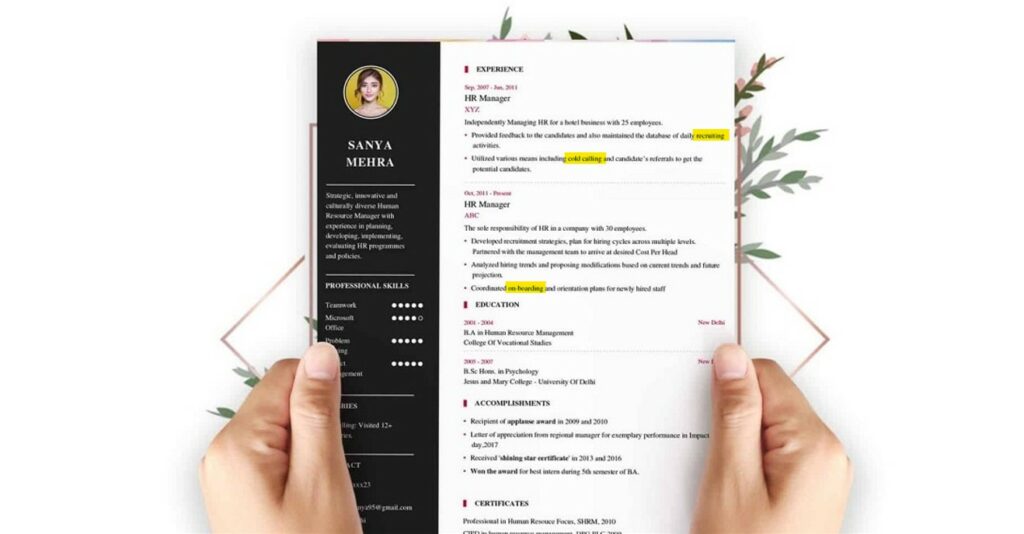
Simply put, choosing the terms that are widely used to describe skills in association with your desired post can help you pass the ATS scan. Make sure to use keywords that represent both soft and hard skills to significantly improve the odds in your favour.
While most corporations use the ATS Scan in the preliminary screening stage of applicants, some companies are reliant on manually assessing resumes, usually done by the HR Manager. With the resume reflecting the candidate’s skill-set matching the predetermined job requirements, there’s a higher chance of getting selected by the HR Manager.
Now that you know how the ATS scans for keywords and why you should add skills to your resume, it’s important to discuss how to identify the skills that are best suited for your desired position.
The right skills can help optimise your resume and are likely to grab attention in the recruitment process. Having said that, it’s not easy to figure out to right skills to highlight for a job. The following steps can greatly help:
To get started, it’s important to recognise your skills and assess your strengths and weaknesses. Identifying individual strengths and weaknesses can arise out of personal insights gathered from previous work experiences and the skills that were required by previous jobs. Once you have an idea of your potential and limitations, you can list down your key skills accordingly. You can also discuss with your peer groups or someone you know personally. The perspective of an outsider can often help in identifying your key skills, abilities, strengths, and weaknesses.
In any industry, it’s essential to have common skills and technical expertise that are specific to a profession. Every profession requires certain skills that help achieve the goals and deal with work-related tasks. Depending on the industry and the profession you’re aiming to work for, you must research and look into the common skills they demand. This helps pick up new skills, as well as improve older skills to use them proficiently. Taking the example above, if the content writer role requires a skill that you don’t have, such as WordPress familiarity, you can learn it before applying for the job.
Every profession comes with its requirements, professional entitlements, and responsibilities. Therefore, while applying for a job, it’s crucial to stick to the job description. This gives you a clear idea of what your job demands, and being able to meet the requirements mentioned in the job description gives you an edge over other candidates. You can write your resume accordingly to highlight your personal and professional skills, connecting them to your job description, and how your skills can be utilised in a way beneficial to the job.

Skills that you can mention in your resume can be broadly classified as hard and soft skills. So, what are they? Let’s find out!
Hard skills are widely acknowledged as technical expertise, knowledge, and training that are specific to the profession. Hard skills are usually acquired from experience in the industry and are essential for fulfilling job-related tasks. Hard skills often include:
As opposed to hard skills, soft skills refer to attributes or qualities that are often considered personality traits. Though soft skills are not specific to a profession, they help adapt to the work environment and coordinate with others. Soft skills often include:
Now that you have an idea of what to mention in your resume, also note that vaguely mentioning your skills on the resume is not going to suffice. As important as hard and soft skills are, they only hold relevance to the HR Manager as long as they are represented adequately in your resume.
So, you must tailor your skills in a way that compliments the job description. And with each skill you mention, the level of proficiency should also be mentioned for the recruitment team to have a clearer idea of your abilities and experiences. If you have already had some experience in the industry, what is better than corresponding your skills to the same? It greatly boosts your resume and helps it stand out. You can also mention universal or common skills to further your claim as a suitable candidate.
However, if your skills don’t match the job description, don’t panic. Instead, focus on your strengths and universal skills. However, in the long term, seek advice from a consultant and pick up the necessary skills to adapt to the profession.
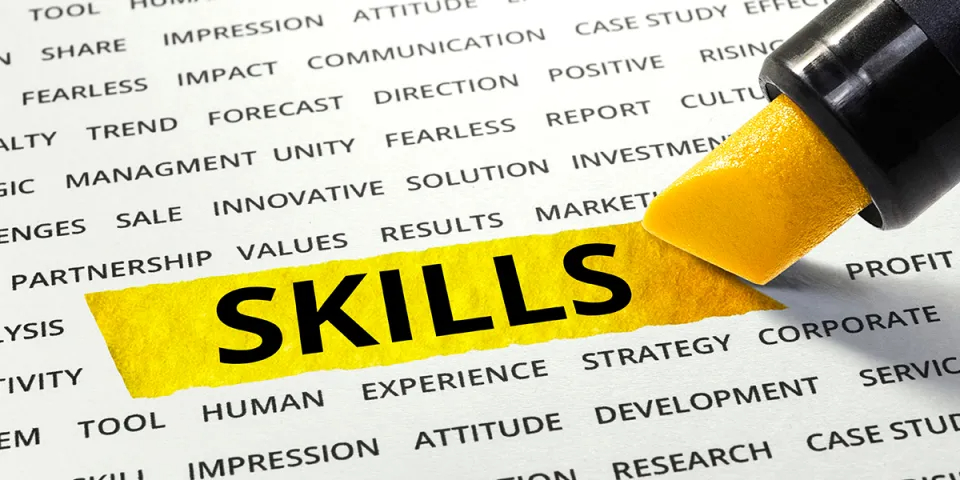
Regardless of the industry, profession, or position you’re applying for, here are some of the must-have skills:
If you have any of the above-mentioned skills, don’t forget to include them in your resume as these are highly valued in today’s job market. And, if you don’t, it’s never too late to learn something new.
If you’re able to find the right way to carefully craft a resume that’s tailored for the specific role you’re applying for, you can definitely advance far in the hiring process. So, apply the tips shared in this article to build your resume in the right way that shows off your job skills, and zoom into the professional world!
The right choice of skills stated on your resume can differentiate you from the competition so you can land the position you want. Best of all, if the hiring manager does decide to offer you the position, your skills section can easily influence the salary figure they settle on. Get started, and good luck!

Not all of us feel comfortable when it comes to boasting or talking about our accomplishments. But to create a killer resume, highlighting your finest triumphs can be done in such a way that recruiters or employers can’t wait to take a chance on you. This is because they know that previous achievements and a history of success are typically reliable in forecasting future performance. You may also be thinking that you haven’t had any great career achievements worth mentioning, so what can you list on your CV?
If you’ve been experiencing difficulties in creating the perfect resume to land the job of your dreams, fret not! In this article, we’ll go in-depth into how including your accomplishments on your CV can help you to get the job that you desire, how to list them for maximum effectiveness, and the most sought after achievements employers are looking for in every profession.
Accomplishments are noteworthy successes, accolades, or awards that you earn for exceeding average standards. They can be milestones in academics, sports, other extracurricular activities, or the workplace. Listing past achievements on a resume is important for two reasons: Firstly, it can be an example of how you can contribute to your employer or the organisation if you land the job. Secondly, it lets potential employers know the type of employee you are, that you have a sound work ethic, necessary skill set, and tenacity to achieve a certain goal.
Your achievements should be emphasised all throughout your CV. Typically, they fit perfectly in the work experience, summary, and projects section. If you have a lot of successes to list, you can also delegate a separate section. The manner in which you present your success varies depending on the area in which you display them. Let’s look into the different sections here:
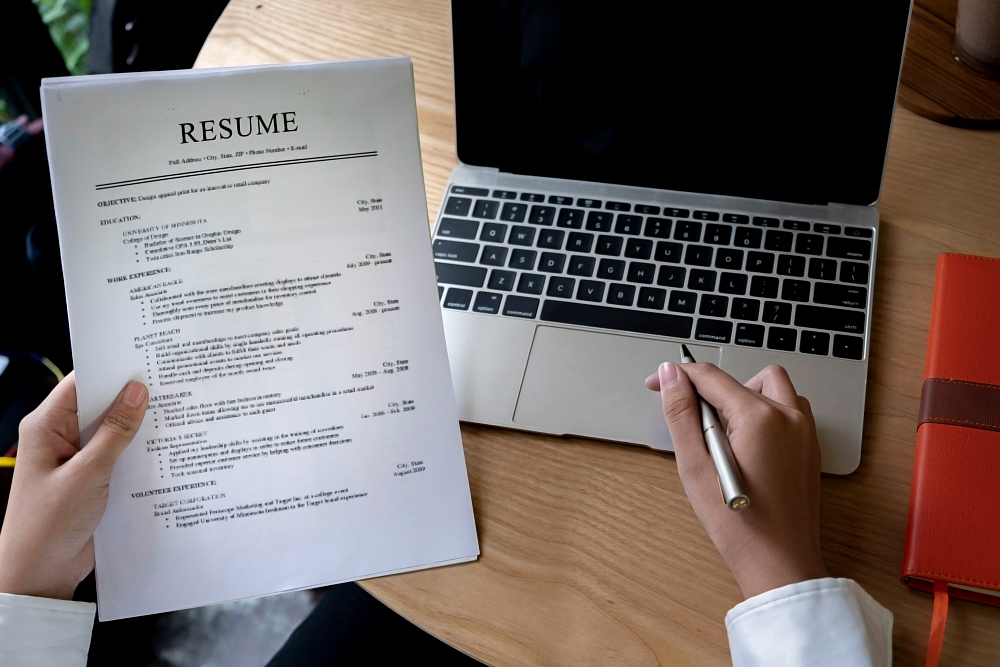
The summary section is typically a short paragraph at the top that gives recruiters a preview of the rest of your resume. It’s the very first thing potential employers will lay eyes on, so it makes perfect sense to outline your most impactful and relevant selling points such as your achievements.
How you describe your previous employment is crucial. Potential employers want to gauge the value that you can contribute to the organisation. We usually convey our experience by specifying work responsibilities in this section. However, stating your duties in the form of accomplishments by evaluating the ‘what’ and ‘why’ and displaying them in short, clear bullet points is a more powerful approach to do this. And whenever possible, include numbers to quantify these successes. This will also inadvertently demonstrate to potential employers that you are a goal-oriented person.
Not all achievements are work related. There may be personal triumphs or special programs that you’ve undergone that are applicable to the position you are interviewing for. In this instance, you may want to designate a special achievements section near the bottom of your resume to offer more details, and/or spotlight the particular distinctions and honors that you’ve received.
The most impressive accomplishments that will attract potential employers are quantifiable ones. The more details you can provide, the more convincing you will be. But what if you have no exact details or data? Luckily, there are a few tried-and-true ways for adding tangible results to your achievements.
All you need to do is remember to consider the timeframe, scale, and results of each specific achievement. You do not need to have the exact figures, estimations suffice. Think about the duration of the particular task, how much did you manage to accomplish during the timeframe, what were the challenges that you had to overcome, how many people were in your team?
For students or fresh graduates who do not have much work experience, you can list accomplishments in other relevant sections such as education, projects, or volunteering experiences. For example, if you were part of a club where you organised weekly beach cleanups, it could be something like: “Organised and led a team of 30 students for weekly cleanups at local beaches.”

What are desirable accomplishments that employers want to see in each given profession? If you’re having trouble deciding what kinds of accomplishments to include on your resume, here are some examples to get you started:

You don’t want to overload potential employers with a sea of information. An overly extensive list might look cluttered and unorganised, which may eventually harm your resume instead of enhancing it. Thus, knowing which achievements to leave out is as equally critical as knowing which ones to showcase.
As life progresses, there will be new achievements that may overshadow past successes. If you have a long list dating back to high school, filter out the less spectacular successes and spotlight the more amazing or recent victories.
As a rule of thumb, professional achievements should always take precedence over personal attainments. You may be proud of your political or religious accomplishments outside of work, but they do not belong on your resume unless they are related to the position you are looking for, which is rarely the case.
Some companies require employees to sign a non-disclosure agreement in order to safeguard sensitive company information. To avoid running into potential legal issues which can also seriously damage your reputation, consider carefully which details you can and cannot disclose.
Listing achievements and accomplishments on your resume can really boost your chances of getting hired because it helps potential employers understand your abilities and worth as an employee. They are also great conversation starters when you get to the interview stage.
Showcase achievements in relevant sections throughout your CV such as the summary, professional experience, or a separate section near the bottom of the document to make sure they stand out. When listing achievements, include measurable details such as the time frame, scale, and result to appear more convincing.
Finally, always remember to include compelling, relatable achievements that you can discuss confidently so that your interviewers will pay attention to what you have to say. Getting their attention will undoubtedly give you an advantage and help you to stand out from the crowd of candidates. And if you’re having trouble listing down your achievements, don’t forget to use the ones we mentioned above to give you some inspiration!

Career goals can be described as the milestones or targets you aspire to reach as you progress in your particular profession. They can be short-term like receiving an award or a promotion, or long-term such as working towards a higher position. For many of us, the ultimate goal in life is to amass an enormous sum of money.
While there’s nothing wrong with this as a motivating force behind why you go to work everyday, there’s more to life than merely filling your bank account. Especially when it comes to job interviews, “Making a lot of money” isn’t the answer hiring managers are looking for when they ask about your career goals. Recruiters are looking for people who have a plan for the future, and knowing your professional goals demonstrates how you fit into the position you are applying for and the culture of the company.
To help you figure out your career goals and formulate a winning answer to that dreaded interview question(s), this guide will give you some helpful pointers!
During job interviews, an interviewer will ask about your career aspirations in addition to your background, academic, and work experience. It is fairly typical to ask this in the form of future-oriented questions so that employers can learn more about your motives for applying to the position, as well as any long-term goals or ambitions you may have.
How you answer these questions also shows how forward-looking you are as a person in general, and how capable you are of making plans for the future. This is a question that employers may ask in a variety of ways such as:
Have you given your future enough thought to know what you want to accomplish next? Setting objectives is critical not only to advance in your career but also to feel a sense of fulfilment in the role. To be attainable, your goals should include five important components that make up the “SMART goals” framework. In business, SMART refers to goals that are specific, measurable, achievable, relevant and time-bound. We’ll examine how to set a SMART goal in more detail here:

Consider your professional goals for the next five years or perhaps even until the following decade. To begin putting them into words, ask yourself the following questions:
Define your career goals and strike a balance between being specific but not too specific that your goal becomes unattainable. Rather than just saying you want to “get a better job”, specify a little more by saying “I want to be the CEO of a successful tech company”.
A clear understanding of the steps you will take to develop in your career is essential. For instance, if you want to move from a career in sales to marketing, setting milestones along the way to achieve this goal can help you to build the necessary skills and experience that marketing organisations are looking for. In this case, you can quantify your progress by acquiring and practising one new skill each month.
Focusing on realistic goals that you can achieve in a fair amount of time will help you stay motivated. You may need to start with smaller, more immediate goals before working your way up to the bigger ones. If you don’t have enough experience to accomplish a goal, set a new one to build experience.
Focus on achieving long-term goals that are in line with your values. Each objective you establish should have some personal value to you that helps you inch closer to your desired outcome in the long run. Ask yourself this:
“How would accomplishing this goal help me?”
“Does achieving this goal help me achieve my long-term objectives?“
“What’s in it for me if I achieve this goal?“
Your goals must also align with the opportunity provided by the role and company that you are applying for. Research the company’s organisation structure, mission, vision, and latest press release to get a feel of the business and culture so that you can tailor your response as best as possible.
You’ll be more motivated and on schedule if you have a timeline for reaching your objective. Consider all the benchmarks and potential hurdles that you may run into before deciding on a deadline for your objective. Suppose your aim is to advance in your company. You might give yourself six months to achieve that goal. If you haven’t reached it by a certain date, reevaluate whether your goal is realistically doable while considering other factors that may have set you back.

When answering questions about your career goals, you must strike a balance between being succinct and thorough. You may be unsure about your next steps, but you should have a strategy for the future no matter how hazy it may be.
The fact that you can’t explain how the job you’re seeking fits into a bigger life plan can be considered as a warning sign by prospective employers. The other side of this is that you don’t want to appear impatient to leave the position. When a recruiting manager suspects that you’re seeking a way out of the job they’re attempting to place you in, it may deter them from progressing your application to the next stage.
You may be perplexed after reading all of that, but here are some examples of how you can properly articulate your professional goals during interviews:
Now that you know what to say and how to answer interview questions about your career goals, learning what NOT to say is important too! Here’s what not to do:

Even if you didn’t prepare well enough beforehand, saying you have no goals whatsoever will be an instant no-go for the interviewers.
Money is a powerful motivator for everyone, probably even for the interviewers. However, that is not what they want to hear, and not what you should say either.
Unrealistic ambitions may discourage you from achieving them, and you may come off sounding arrogant to the interviewers, which will hurt your chances of moving on to the next phase.
You don’t need to mention that this job is merely a stepping stone on the way to your ultimate ambition of becoming the CEO of another company. This will let the interviewer know that you are only interested in this position for the time being. Saying that you aim to become the head of a marketing department is specific enough without leaving a negative impression.
Having and setting career goals provide structure and paves a clear way to success. Many organisations value individuals who have a track record of creating and completing objectives. This demonstrates that you are a goal-oriented, motivated employee. Keep in mind that you want to be useful to the organisation.
You’ll have an advantage if your ambitions align with the firm’s values, or even better, if the company benefits from them. Give some specific steps you intend to take to achieve your objectives to demonstrate that they have been carefully considered. When it comes down to it, spend the time to properly prepare and practice, so you can confidently nail these future-oriented questions and land the job that you want!

Change is the only constant thing in life. Your ability to adapt to those changes will determine your future success in life. However, adapting to changes is easier said than done. Humans are behaviouristic animals, so adapting to changes, especially in the workplace, might not be as easy as you think it is. After all, adaptability is considered one of the most important leadership skills every successful entrepreneur possesses.
Adaptability skills often refer to the ability to be flexible to overcome changes, which are most often sudden and unexpected. Adaptability is considered one of the most desired soft skills every employer seeks when choosing suitable candidates. And usually, people with good adaptability skills are employees in the managerial position that can act upon their own judgment in making difficult decisions.
Now, since adaptability is considered a soft skill and not a hard skill, this means that it’s a skill that everyone can learn and develop. But, before we proceed in teaching you how to develop your adaptability skills, it’s crucial for you to know how many types of adaptability skills there are.
The ability to seek and ask for more information and clarification for tasks and projects you’re unfamiliar with shows how motivated and adaptable you are in learning new things to overcome new challenges.
Other forms of communication such as active listening and non-verbal communication skills are also the essence of being adaptive. They help you to become more attentive in navigating changes and dynamics in your workplace.
Much like communication skills, having good interpersonal skills can also help enhance your overall adaptability skills. Avoiding miscommunication and conflicts while you’re positively interacting with your colleagues is just as important to ensure the flow of your teamwork sails smoothly.
Great problem-solving skills help you find quicker and more creative solutions in adapting to changes or new challenges at work. Observing and analysing the problem may open up different approaches to solving the issues at hand. The willingness to make adjustments and improvements shows how adaptive you are when it comes to problem-solving.

The ability to think creatively is also an important part of adaptability skills. Constantly sourcing and finding new ideas in overcoming difficulties and implementing these new and well-thought methods may help develop new strategies which portray how adaptable you are as a person.
As they always say, teamwork makes the dream work. With the combination of different skills, backgrounds, and experience you and your colleagues have, all of you might be able to make things work with the diverse skill sets you’ve gathered. Having good teamwork skills enables you and your team to come up with different ideas that may positively benefit your team’s adaptabilities as a whole.
Adaptability can be an essential asset when you’re faced with unconventional challenges at work. Often enough, all of us have a clear goal with no path or ways to get there. When you’re adaptive at work, you’ll be able to acquire the necessary resources and techniques that less-adaptable colleagues could never even think of needing. When you’re resourceful by nature, you’re able to notice patterns, be innovative, be more creative, have good problem-solving skills, be initiative, and are good at budgeting.
Everyone who stops learning is old regardless of age. And when you’ve failed to learn from your failure, you’re bound to get discouraged and develop negative perceptions towards any changes that are to happen in the future. People with adaptability skills often view changes as a part of their learning process in order to better themselves.
In life, you’re constantly surrounded by challenges that will shatter your confidence if you’re not persistent enough to keep yourself going. People who adapt well will often push through these difficult times and can stay positive while encouraging their teammates to be objective when things get complicated.
When you’re well organised in all aspects of your work life, including the paperwork and digital files, it may help you better prepare for operational changes. Having excellent organisational skills is necessary to develop your adaptability to overcome different challenges at work.

Why stay constantly admiring someone else’s strengths and abilities when you can learn from them and be better? Learning from others is probably one of the best ways to develop your adaptability skills. Having more strengths and techniques at hand means that you can come up with different ways of solving an issue. You’ll never be running out of methods, which is an excellent adaptive quality to have in a workplace.
Developing a growth mindset helps you acquire new skills, techniques, and knowledge needed to take on new challenges suitable for your current and future projects. Being adaptive and willing to try new things will indefinitely have a long-lasting positive impact on your career.
Setting goals to work on overcoming your weaknesses will improve your overall adaptability and willingness to accept changes that will positively affect your life in the long run.
Asking questions and feedback is one of the great ways you’re able to improve yourself, which helps develop your adaptability skills. Great things are never done by one person alone, but they’re done by a team of people who’re willing to help each other outs. All you need is to ask the right questions, and you’ll receive valuable answers that will forever change your life.
Learning to accept and acknowledge changes will probably be the hardest thing to do, especially negative changes. However, learning how to accept these changes will help you take a step forward in adapting to these situations, which ultimately leads to a smoother transition in your career life.
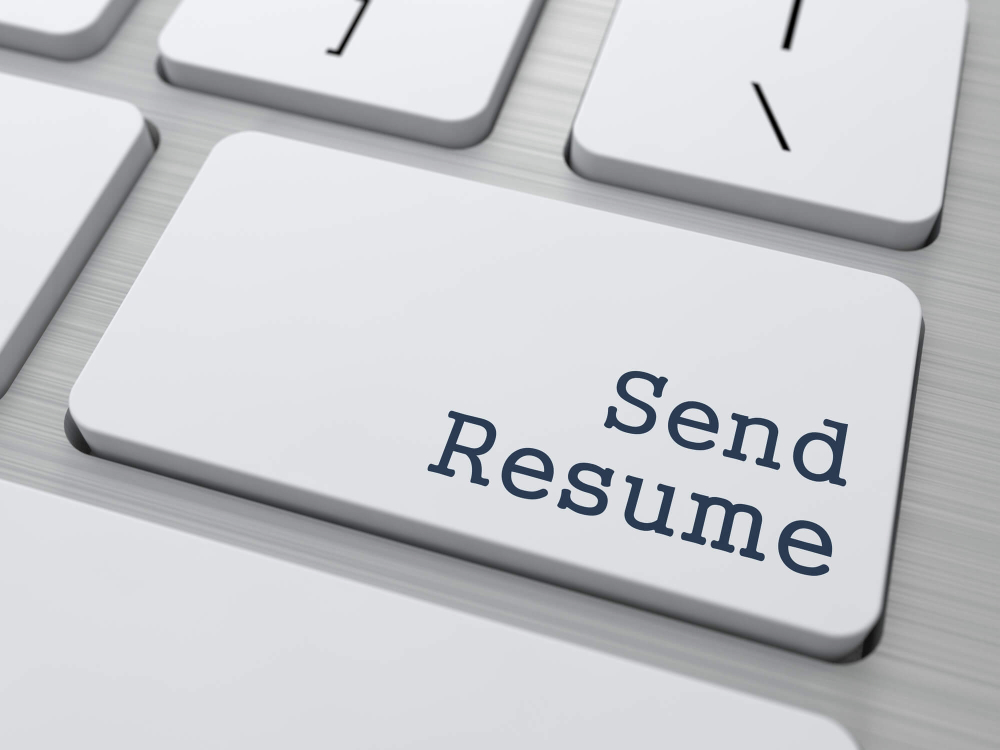
Highlighting your adaptability skills on a resume will probably increase your chances of getting an interview for jobs you’re applying to. Remember to provide examples of how this skill managed to help you in solving problems. Don’t forget to include other soft skills that might be helpful too!
It’s always good to tie down your ability skills with past job experiences in your cover letter. Consider describing how being adaptive helps in coming up with a creative solution to solve your company’s or customer’s problems.
As mentioned, all employers seek out candidates who have good adaptability skills. You can use the chance to describe your adaptiveness when your interviewers are asking about your past experiences and achievements. Hence, highlighting your adaptabilities during an interview might just help in getting you your desired job.
In conclusion, adaptability is one of the vital skills a leader must have in order to overcome this ever-changing world that we all live in. It’ll allow him/her to not be afraid of change, as well as open up their minds to new ideas and fresh angles that can help to solve the problems on hand. According to a research paper titled ‘Why Flexible And Adaptive Leadership Is Essential’, the authors Gary Yuki and Rubina Mahsud wrote that “Threats which are often unanticipated will always arise to sink an organisation, damage properties, and lives. One way an organisation can survive this threat is by responding quickly to these threats when they arise. Adaptive leadership is what every organisation need if they are to survive troubling times.”
People with good adaptability skills are those who will rise in leading the people to a successful future. It’s just as Charles Darwin once said, “It is not the strongest or the most intelligent who will survive, but those who can best manage change“.

People often remember you based on their first impression of you, which is why it’s vital in life for you to know how to introduce yourself properly. Hence, you need to create and portray an accurate image of yourself to positively impact the person you’re speaking to. A good introduction is often able to show signs of friendliness, which makes the hiring managers as well as your new acquaintances feel comfortable to be around you.
So, what exactly is a self-introduction, and what does a good one look like? A good self-introduction often describes who you are as a person, what you do, and what others should know about you. It only requires a few sentences to cover your good points. It should also include your name, occupation or desired occupation, and necessary details about you. And, don’t forget to wear a smile along the way, greeting everyone with a simple hello is a sign of good mannerisms.
The first thing you should inform people about yourself upon arrival is to do a simple introduction which includes telling them about who you are and what you do professionally. And what’s better than using a straightforward sentence in delivering this sort of information.
Considering the context and settings you’re in are probably two of the most important things in preparing your introduction. You must align your introduction with the environment. Imagine talking about your favorite food as part of your introduction in a technology workshop. It’s entirely irrelevant to the context you’re in.
This section of your introduction is closely related to your job titles and descriptions. Everyone you will be working with will most likely be interested in your previous contributions to the professional line of work. Explaining what you’ve achieved previously will give them an idea of the areas you’re able to help them with.
Depending on your job and the title that you hold, you might need to explain and describe more about what you do. Little did you know that most job titles other than CEO, Director, and COO (you get the gist) don’t mean much to others. If you believe that your job title itself doesn’t talk much about what you do, then you should talk about them yourselves.
Assuming you’re introducing yourself in an international setting, you might offend some people without knowing if you did not take into account your audiences’ cultural context.

When you receive an invitation for an interview, it’s a good habit for you to research and learn more about the hiring company. Before attending their interview, the things you should know about the company include their mission and vision, services and products, past contributions, current clients, their targeted audiences, and even their competitors! Jot down this information in a paper and prepare some answers for their questions about themselves. This will help with your fluency, which is one of the vital points of your introduction.
a. Before the interview
The process of introducing yourself for an interview begins the moment you arrive at the company. It’s a basic courtesy to introduce yourself to the receptionist and state why we are here at their company. A simple “Hi, I am [Name], and I have an interview at [time] for the role of [name of the job] if your company” would be enough.
b. During the interview
Once you’ve been taken to meet your interviewers, it’s crucial to greet them with a firm handshake. And when everyone’s ready, you can begin to introduce yourself to the interviewers. During the interview, make sure you answer their questions with determination and don’t talk too fast. It’s okay to pace yourself when you speak.
c. After the interview
Once you’ve finished your interview, remember to give a proper farewell to your interviewers. Expressing your gratitude to be given a chance to be interviewed might help you create a better impression on your interviewers.
Of course, having to use body language helps you emphasize the words coming out of your mouth. It shows that you’re confident and are sure of who you really are. However, overusing your body language isn’t a good idea either. So, remember to keep yourself relaxed with your chest up high to help you make a better impression and communicate better with your interviewers.
“Hello, my name is [Name]. I am from [place], and I completed my [bachelor’s degree] from [University] in [year].
I have been working with [company’s name] for almost [time that you’ve been in the company]. During my time there, I have learned all of the operational procedures, and I managed to get promoted from an executive to a manager.
I am confident that with my qualifications and working experience, I am best fitted for the hiring role. Not only am I passionate about [your field of work], I am also [explains the soft skills that you have]. I am looking to join your company in hopes to explore new dimensions in order to develop my skills further.”
Hello, I am [Name] and I am from [place]. I completed my [bachelor’s degree] from [University/college] in [year].
As a student, I’ve accomplished [name your accomplishments]. I’ve also participated in [name the clubs/societies you’ve participated], which help develop my skills in [name the soft and hard skills you’ve acquired].
I also took extra language classes, and currently, the languages that I can use include [name the languages that you can use].
I look forward to hearing from you again, and I will be happy to answer any queries that you might have for me.”

When you’re doing a self-introduction, the first thing to remind yourself is to avoid narrating the contents of your resume and cover letter. Your hiring managers probably already know about you, based on the documents you’ve submitted. It’s crucial to show them that you’re more than just what you portray in your resume and cover letter.
Read more: How To Write An Effective Cover Letter That Stands Out (With Samples)
Another important thing to remember is your body language. How you present yourself is just as important as what you say about yourself. A strong and calm voice, steady eye contact, and open body language will all shape the delivery of your message. This is backed by research which found that 20% of interviewers said they rejected applicants if they crossed their arms, while 65% of interviewers said lack of eye contact led them to reject a candidate.
Read more: Top 12 Most Common Reasons Recruiters Are Rejecting Your Job Applications
You should also avoid taking a lot of time when you’re introducing yourself. In other words: Don’t ramble on and on…and on (no need to narrate your life story!). Explaining and highlighting specific qualities and experiences that can be related directly to the job role would be enough to impress them.
Last but not least, do not ask your interviewers, “What do you want to know?” This shows your interviewers that you’ve come unprepared, and have not thought of what to say during the interview.
Regardless of whether we’re in a professional or a casual setting, it’s very important for you to prepare a good self-introduction as it helps you make a good impression on others. When you’ve gone to a place unprepared, you’ll often find yourself consuming a lot of time figuring out how to best describe yourself when you’re approached by anyone new. Hence, it’s very useful if you already have a well-thought self-introduction that portrays you perfectly.
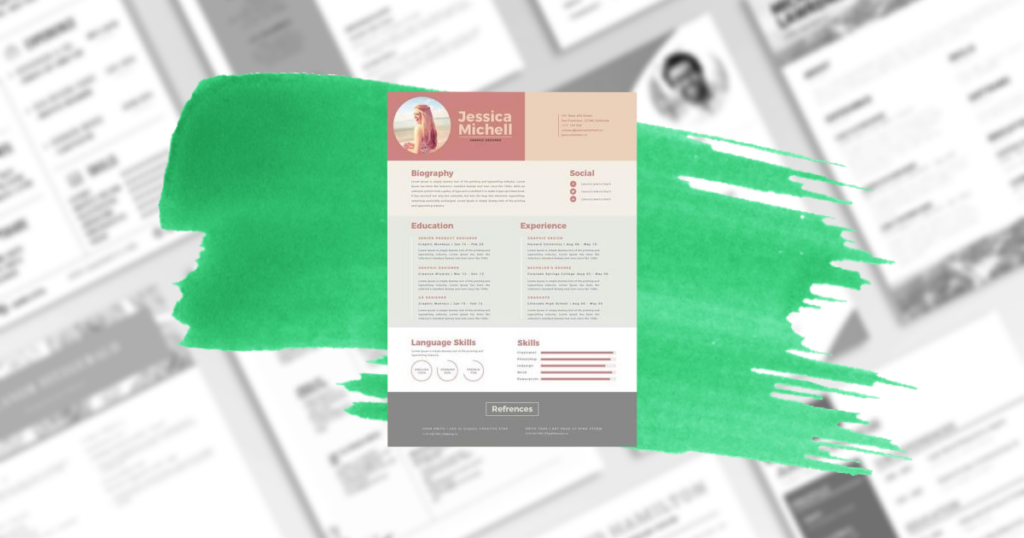
Your resume is a marketing document that you create to persuade a hiring manager or recruiter that you’re the best candidate for the job. A powerful way to achieve this goal is by using action verbs in your resume, which will make it stand out from the crowd of other applicants. In this post, we’ve compiled 100 words to use in different situations, so that you can be sure your resume stands out.
An action verb describes what the subject is doing. They’re essential to a strong resume since they may be used to add emphasis to a phrase in order to provide relevant and important information. Using action verbs can make your resume stand out from the crowd, as action verbs add energy and vitality to the descriptions which further strengthens your candidacy for the job.
Below are some phrases that can be found on a professional (or entry-level) resume with the corresponding action verbs:
A general resume would be as such “Delivered presentations to clients and management.” But with the use of better action verbs, “Prepared, delivered and summarised presentations for clients and management.”, there’s more emphasis on presenting information as well as summarising it with a stronger verb instead of just describing what was done. In some cases where you’re not sure if you should use action verbs, you can always remove the description and see if it still makes sense.
Here are a few more examples:
Action verbs extend your writing to be more compelling than just a list of duties, responsibilities and skills. They also serve to answer the hiring manager’s questions “So what?” and “What did you do?”.
The following list contains action verbs in different situations that can be used when writing your resume or cover letter. The groupings display action verbs in tasks that are often used within specific career fields.


It’s important to be cognizant of the words you choose when writing your resume. Action verbs and active voice make a significant impact on how people perceive your resume, so it’s worth the extra time to make an impression. You can improve your chances of getting an interview by demonstrating what you have accomplished in past positions or projects that demonstrate why they should hire you for theirs. Whether you’re looking for a new job or are just updating yours, this list will help get those creative juices flowing!

Job seekers often feel anxious when it comes to the interview process. The STAR method is a strategy that helps remove some of this anxiety, by providing job seekers with a framework for structuring their thoughts and responses in an interview. This article will cover what STAR stands for, and how you can use it to rock your next interview.
The STAR Method is an acronym that stands for Situation, Task, Action and Result. It’s a framework for structuring your thoughts and responses during the interview process so you can communicate what it takes to rock this role. The result of using the STAR method in interviews is one where hiring managers get a complete picture of you as a candidate and feel confident about your ability to do the job.
STAR is a great way to structure your thoughts, which can help you to provide more concise and complete answers. But it’s also important that the STAR Method doesn’t make an interview feel like a job application form. Here are some tips on how to get the most out of this strategy without overdoing it:

Situation: My ability to communicate ideas fluently and effectively has always been one of my greatest strengths.
Task: When I’m working with a team, the first thing I do is make sure everyone understands what they need to accomplish during our project or assignment, which allows us to work more efficiently.
Action: Then, if there’s someone who isn’t clear about something specific within their role, I take time after hours (or at lunch) so that we can discuss it further until it makes sense for them – even if this means staying late).
Result: This approach not only helps me build relationships with others on my team because they know how much value I place in making sure that everyone understands their tasks, but it also ensures our team is able to reach its goals.
Situation: I tend to be a perfectionist, which means that while it can be helpful when working on detailed projects or assignments, sometimes this tendency makes me work longer than necessary.
Task: Working on improving my own timeframe for completing tasks and focusing more of my attention outside of the office has helped me become more efficient in how I use my time at work.
Action: For example, if we’re using task management software like Trello- instead of just checking off what’s left over from our list every day after hours, I’ll find ways to help with other things within the company so that everyone wins.
Result: In doing this, not only have I been able to make sure all of our team members’ needs are met more efficiently, but I’ve also helped the company save time and money.

Situation: When the company I worked for was acquired by a larger corporation, my role changed from working on independent projects to collaborating with other teams.
Task: Collaborating with others didn’t come naturally at first, because I never had to do it before. However, thanks to all of the great training we have here, I learned how important teamwork is and became an effective team player.
Action: Now, even when there are challenges that arise during this process or some people aren’t as open to collaboration as others initially were, they’ve been more receptive since seeing me be so flexible in my approach.
Result: Because of this attitude adjustment within our department overall, we’re able to complete projects more efficiently than ever before.
Situation: When I first started my career as a software developer, I made a lot of mistakes because the code I wrote wasn’t very efficient.
Task: Because of these challenges, I decided to enroll in a coding course online and started doing side projects at my job after hours.
Action: After several months, I was able to drastically improve the performance of my code, which is what allowed me to earn more responsibilities within our team.
Result: As a result of this experience, I learned how important it is for problem solving. So now if something doesn’t work right away during an assignment or project at work, I don’t get discouraged because that’s not uncommon. Instead, it motivates me even more so that next time things will go smoother.
STAR is a method for answering interview questions. It stands for Situation, Task, Action and Result. With this, it allows you to answer any question with depth and provide an example of your skillset in action while showcasing the results that it achieved. With this approach, you can show how you think critically about problems and take initiative when necessary- which are two qualities that employers love. Practice using this technique by working through some examples from the list. Then, see how well you do in a real interview. You may be surprised by how well you can answer questions using the STAR method.
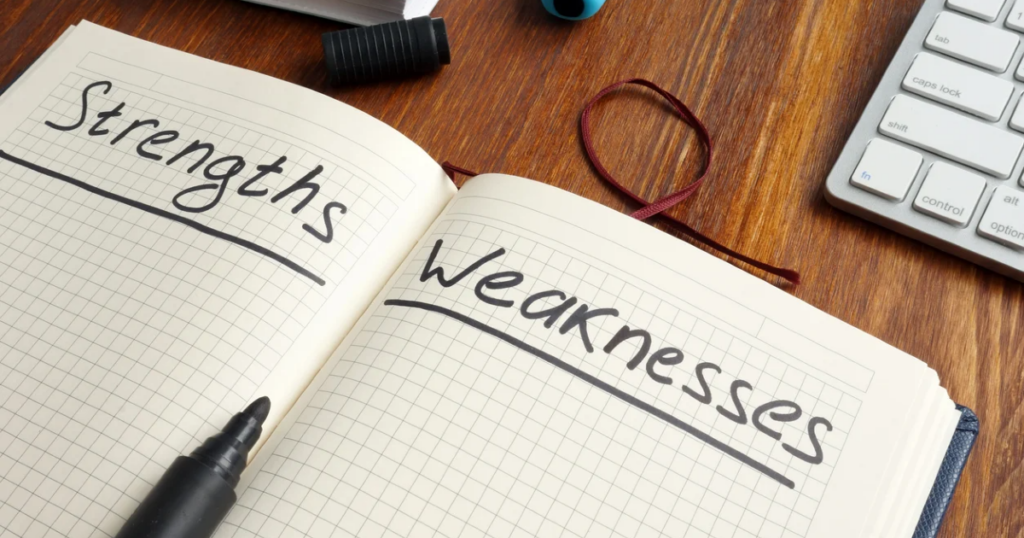
If you’re looking for a job, it’s important to be ready for the interview. Not only should you have an idea of what the company does and how your skills could help them, but also how to respond when they ask about your strengths and/or weaknesses. For this type of question, there are plenty of answers that can put you in a positive light while still showing that you’re human! In this guide, we’ll outline 30 killer responses so your next interview is a success.

Bragging too much is not advisable, you’ll just sound very self-satisfied and with an exaggerated sense of self-worth. Let’s try to avoid that. Some examples of strengths include:

It’s critical to remember the following as you prepare your response to the interview question “What are your strengths and weaknesses?”
Turn your flaws into difficulties you’ve overcome and your strengths into why you’re a fantastic fit for the job when you prepare your replies.
Good luck for all those interviews!

As you may have noticed, it’s become increasingly difficult to find a job. Many hiring managers are using AI and trained recruiters to sift through piles of resumes in order to find the perfect candidate for their company.
Unfortunately, if your resume doesn’t appeal to these technologies then you will be disqualified before human eyes ever get a chance to see your qualifications. So, how do you write an e-resume that’s attractive to both man and Applicant Tracking Systems (ATS)? We’ve compiled 10 tips that will help make sure yours is able to speak both languages!
One way to make sure your resume is attractive, is to use a simple font. Try not to use too fancy types! Arial or Helvetica are great options because they’re small and easy to read fonts that don’t take up much space on the page. Another tip would be to use a font size between 11 and 12.
Another way to make sure your resume to include keywords that speak directly into the requirements of the job position you’re applying for. For example, if you’re applying for an administrative assistant role then include words like “attention to detail” and “organisational skills.” If you’re applying for a sales position, include words like “motivated,” “sales experience,” or “negotiating.”
This should go without saying, but do include education in your resume when possible! Studies have shown that people who receive higher education are more likely to find a job. They also tend to receive higher salaries and have lower rates of unemployment than those who did not attend college or get an advanced degree. So make sure you include your educational background in the education section of your resume!
Include references upon request on your resume! Most companies will ask for references when they’re hiring someone new. It can be a bit of an inconvenience to have recruiters call your previous managers in order to get the information needed about you, so it’s best if this is already included on your resume!

Another tip would be to include a link on your resume. If you have an online presence that’s related to the position that you’re applying, then try including links to it! LinkedIn, for example, allows users to connect their profiles with potential employers which can help strengthen your candidacy when looking for jobs. As another option, use a portfolio website to display your previous work and accomplishments.
Make sure that there are no grammatical errors on your resume! Nothing is worse than a recruiter or hiring manager having to read through pages of an error-riddled document. So make sure you check over it one more time before submitting it for consideration.
Include all relevant work experience and volunteer experience in the “Work Experience” section of your resume! When you’re trying to get a job, it can be tempting to forget about any experience that doesn’t relate directly to the position you’re applying for. But this isn’t an effective strategy because recruiters will appreciate knowing everything they can about their applicants, even if it isn’t directly related to the job they’re hiring for. So make sure you include any work experience or volunteer experience in your resume!
In order to make sure your resume is attractive both man and ATS is to make sure your resume has an appropriate length. If you’re applying for a position that requires minimal experience, then it should only be one page long! However, if you’re looking to apply for positions with more responsibility (or higher salaries), then your resume should probably be two pages long at least. This will give the recruiter more information about you and your achievements.
Another tip to make your resume more attractive is to use bullet points! Bullet points are excellent ways of listing off information quickly while also making it easy for ATSs to pick up on. So if you have a lot of key takeaways about yourself that would be helpful in the decision making process, then consider using bullet points. List accomplishments and phrases on your resume rather than just focusing on responsibilities and duties of past jobs. Try writing some bullet points with keywords like “Increased revenue by X%” or “Managed team of Y people, resulting in Z% increase.” This will help give readers specific examples of how their company can benefit from bringing you aboard!
Last tip to make your resume more attractive to both man and ATS is to proofread your resume one more time. You don’t want to miss any typos or grammatical errors. It will reflect poorly on the quality of work you produce and it can also be distracting for recruiters, so make sure that everything is perfect before submitting your application!
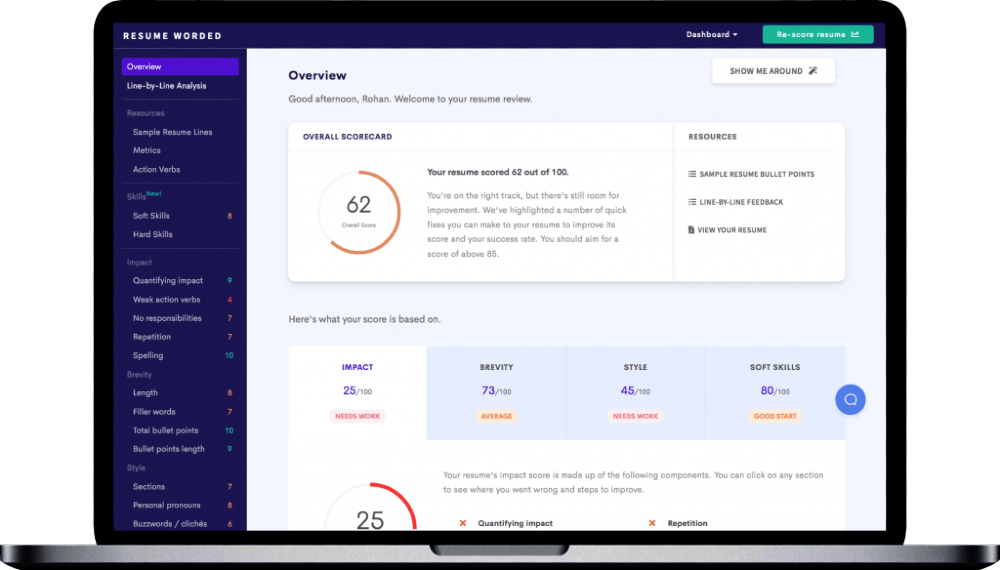
Once you’ve finished writing your resume, it’s advisable to test your resume with an AI. One really cool thing about the internet is that there are a lot of resources available to help you with this process, such as Resume Bot. This service will grade your resume and tell you what you can do in order for it to be more appealing.
You see, in this age of AI, recruiters are more likely than ever before to be scanning your resume for keywords and key takeaways about you as well as evaluating its overall appeal. After reading this article, hopefully, you now have some helpful strategies in mind that will make your resume stand out from the crowd. We hope you found this article helpful, and good luck!

Every interview is an opportunity to show your potential employer that you’re the best candidate for the job. The problem is, many people go into their interviews unprepared, and end up making a bad impression.
Practice is one of the most important things you can do to prepare for an interview. Practice answering questions with a friend, family member or alone so that when it comes time for your real interview you’re prepared.
Doing research on the company will help you answer any question they may ask about who they are and what they do. You can also ask questions that pertain to the company so you look interested in them. For example, if you’re interviewing for a company that makes sports equipment, ask about their newest line to show your interest.
Take some time before your interview to look over the job posting. This will ensure that you’re aware of all the responsibilities for this position, and can answer any questions they may have about what is required from you, if hired.
Before going into an interview always prepare at least two answers for each question your might be asked during a job interview. This way, you’re prepared for any question they may have and can give them an answer when asked, which will leave a good impression on the interviewer. For example, if they ask you, “Where do you see yourself in five years?“, you can give them an answer such as “I hope to still be learning from this company and growing within the position I’d been hired for.”
Take time to prepare a list of references the company can contact if they’re interested in you. These should be people who know your work ethic and can vouch for your character.
Take time to prepare examples of your work that you can talk about if asked. You want to make sure these are the best examples possible, and will show a potential employer why they should hire you. Consider portfolios, any previous work experience, activities with friends/organisations, or volunteer jobs you’ve held in which you’ve demonstrated competence and success.

When you’re preparing for an interview make sure to wear appropriate interview attire. This will ensure that you give off a professional appearance and can impress your interviewer.
If you wear perfume or cologne, try to go light on it. You want your interviewer to focus of what is being said, and not on the overpowering smell coming from you!
When you’re preparing to go into an interview, try to plan your day so that you can arrive about ten minutes early. This will allow for any unforeseen problems, and give you some buffer time if the traffic was bad on the way there or other issues arise.
If possible turn off all electronic devices before going in for an interview, including cell phones. If not able to do this make sure they at least have their ringer turned off so it does not interrupt during speaking with the interviewer(s). It’s also best if these items are put away completely out of sight where others cannot see them either.
Make sure you bring copies of your resume, a notebook and pen, and the reference list if it’s requested. You want to make sure that everything they may need from you during an interview is ready for them. This will leave a good impression on the interviewer because they won’t have to ask for these items.
Be sure to look your interviewer in the eyes when speaking with them and not at the floor or ceiling. This will show interest in what they’re saying and can help you connect better with them which could give you an edge over other applicants who don’t do this during their interview.
Try your best to avoid fidgeting during the interview. This includes things like playing with a pen, touching your face or hair repeatedly, and crossing and uncrossing your legs. All of these are signs that you may not be interested in what is being said which can give off an unprofessional vibe to potential employers. Also try not start out by saying “um” before every sentence when speaking because this will show hesitation which could make them think twice about hiring you for their position.

It’s important to be polite and have good manners when speaking with your interviewer. This includes things like saying please, thank you, if you don’t know the answer just tell them that instead of making something up or avoiding the question all together. Other things to include are having good posture, making eye contact when speaking with them, smiling naturally instead of forcing it because you think they expect it from you.
When arriving at the business where you’re interviewing, it’s best to be friendly but brief with staff members. This will show that you can maintain a professional appearance while still being personable and not standoffish. Allow your interviewer(s) to guide the conversation, don’t feel pressured to fill silent gaps in dialogue.
If there’s silence during an interview try not to feel as though you have to fill this gap by speaking or asking unnecessary questions. It’s okay if sometimes these moments happen so just let them occur naturally without feeling pressure from yourself or others present for this time period of quietness.
Maintain your composure if the interviewer asks difficult questions. If at any time during an interview the interviewer asks a question that is very personal try your best not to react negatively in anyway. If needed take a moment or two before answering so that you have enough time to collect yourself and answer their question without being too emotional about it. This will leave an impression on them for showing responsibility by thinking through what could be considered as hard times in life.
If your previous employers are brought up during an interview it’s best to not speak negatively about them because this could leave the interviewer with a bad impression. Instead of talking badly about these people try focusing on what you learned from them and how they helped prepare you for where you want to be in this new career path instead.
Stop yourself if feelings come up that may make it obvious that something has made you angry or sad. If any negative emotions come out while speaking, stop right away and wait until things have cooled off before continuing with your answer or question. This will give the interviewer(s) better insight into who you really are as a person when put under pressure which can show if someone would be able to handle working in certain situations at a company.

At the end of the interview, when an interviewer is finished asking their questions it would be best to ask them about next steps in this process. This will make you seem interested in what they’re doing, which could lead them to think that you might be a good fit for their company if all goes well after your second visit with them at some point down the road.
After an interview has taken place it’s good to send a follow up thank you letter to the interviewer(s). Make sure this note is personalised and not something that was generic because there are many people interviewing for one position. Include things like what stood out most about them during your meeting, why you think they would consider hiring someone like yourself for their company, anything interesting or important that happened throughout the course of the visit with them on this day which could have made a lasting impression upon them as well.
Interviewing for a new position is an exciting time in your life (your resume/CV were one of the selected few to catch the eye of the recruiter!). To make the most of this opportunity, it’s important to be prepared and put forth your best self so that you can land the job offer. It may seem like a daunting task, but with these interview tips, you’ll have everything you need to ace your next interview.
From making yourself memorable by using body language cues or being friendly when greeting staff members upon arrival, to getting off on the right foot all the way through to following-up after receiving feedback about how they think things went during your visit, we’ve got you covered.